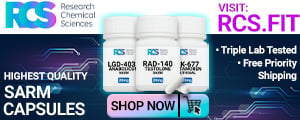
The safety of oral steroids compared to injectable steroids, SARMs (Selective Androgen Receptor Modulators), or peptides is a complex topic and depends on various factors, including dosage, duration of use, individual health conditions, and the specific substances used. The majority of experts would tell you that Oral Steroids have a higher risk for short-term side effects. At the end of the day, no substance is truly safe and each type of substance has its own risk profile:
Oral Steroids:
Hepatotoxicity: Oral steroids, especially those that are 17-alpha-alkylated, can be hepatotoxic (toxic to the liver). This is one of the most significant risks associated with oral steroids. Effect on Lipid Profile: They can negatively impact cholesterol levels, increasing the risk of cardiovascular diseases.
Short-term Efficacy vs. Long-term Risks: Oral steroids are effective for muscle growth and performance enhancement but pose significant risks if used over the long term or in high doses.
Injectable Steroids:
Lower Liver Toxicity: Generally considered safer for the liver compared to oral steroids because they bypass the liver.
Risk of Infection: There is a risk of infections or complications from injections if not done properly.
Other Side Effects: Similar to oral steroids in terms of other side effects, including hormonal imbalances and cardiovascular risks.
SARMs:
Perceived Safety: SARMs are often perceived as safer due to their selective action, but long-term safety data is lacking since these compounds are relatively new and still under research.
Unapproved Status: Most SARMs are not approved for human use by major regulatory bodies, raising concerns about their safety and quality control.
Peptides:
Targeted Actions: Peptides, like growth hormone-releasing peptides, are thought to be safer due to their more targeted actions and natural role in the body
Limited Data: Like SARMs, many peptides are still under study, and comprehensive safety data is not always available.
In summary, while oral steroids are effective, their potential for liver toxicity and negative impact on cholesterol levels make them riskier compared to other drugs in these aspects. SARMs and peptides might be considered safer alternatives, but you must accept that we just have sufficient comprehensive long-term safety data. It’s essential for anyone considering these substances to understand their risk profiles.


